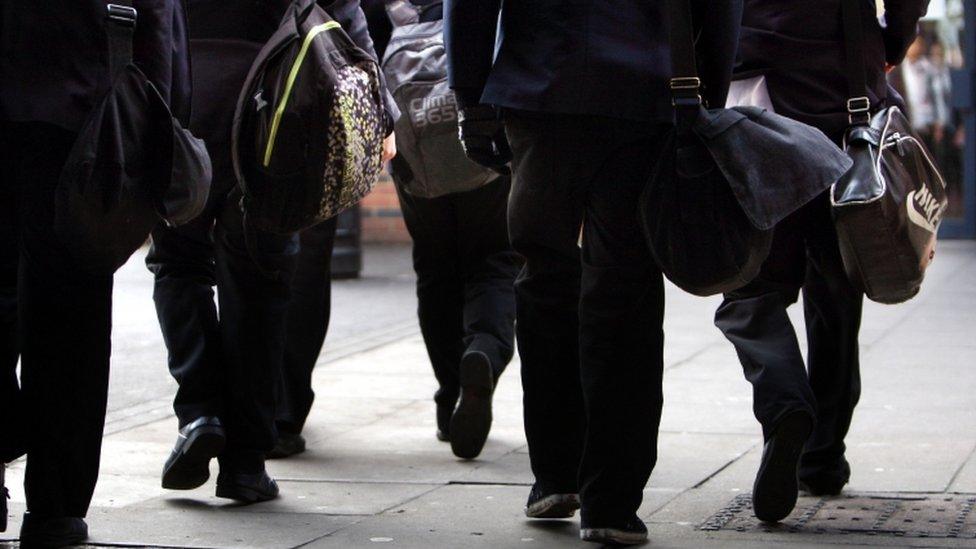Race for Power: Campaign to improve Bristol's race equality
- Published
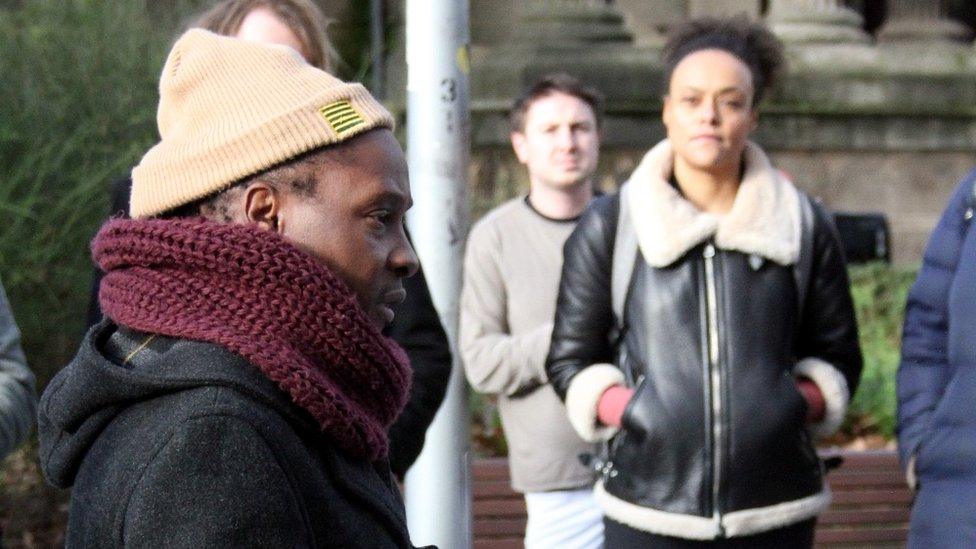
Julz Davis at the launch of Race for Power
A new campaign aims to further conversations on racial equality in Bristol.
Campaigner Julz Davis has started Race for Power to help tackle representation issues in the city.
At a launch event, people wrote a symbolic card to Martin Luther King with their reflections on how Bristol could improve its racial equality.
Mr Davis is planning on presenting the card to leaders of the city during October's Black History Month.
The campaign was launched in the year of the 60th anniversary of Mr King's speech and the Bristol Bus Boycott's success- which happened on the same day in 1963.
While recognising the impact of the boycott which helped lead to the Race Relations Act, and the election of Marvin Rees as the UK's first black mayor, the campaign stresses there are still representation issues in Bristol that need to be challenged.
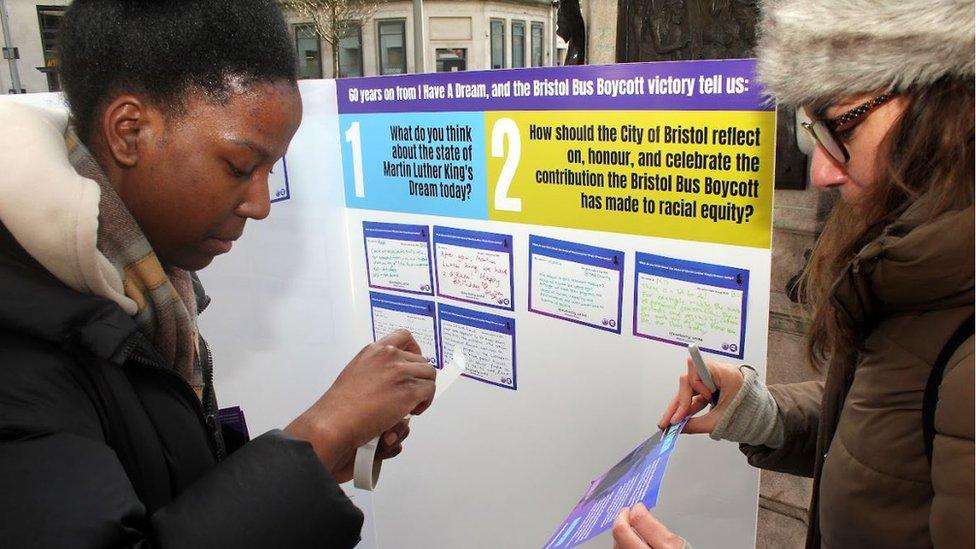
People were offered the chance to give their views on race and equality
Members of the public were invited to gather at the plinth where slave trader Edward Colston's statue was pulled down on 16 January and write messages about Mr King's speech.
Gatherers wrote a giant card to Mr King, which Mr Davis also plans to send to The King Center - The Center for Nonviolent Social Change in America - in time for 28 August, the day the famous speech was made in 1963.
People wrote their thoughts on where Mr King's dream speech idea is today, how Bristol should celebrate and honour the history made by the Bus Boycott and how the city can be better for people of colour.
One person wrote: "Whilst some aspects of Mr King's dream came true, the problem still remains. Institutional racism continues to impact people in the workplace."
Another wrote: "His dream is still relevant today as much as it was 60 years ago. Although we have seen progress, the issues of racism, inequality and discrimination are interwoven into all systems of society."
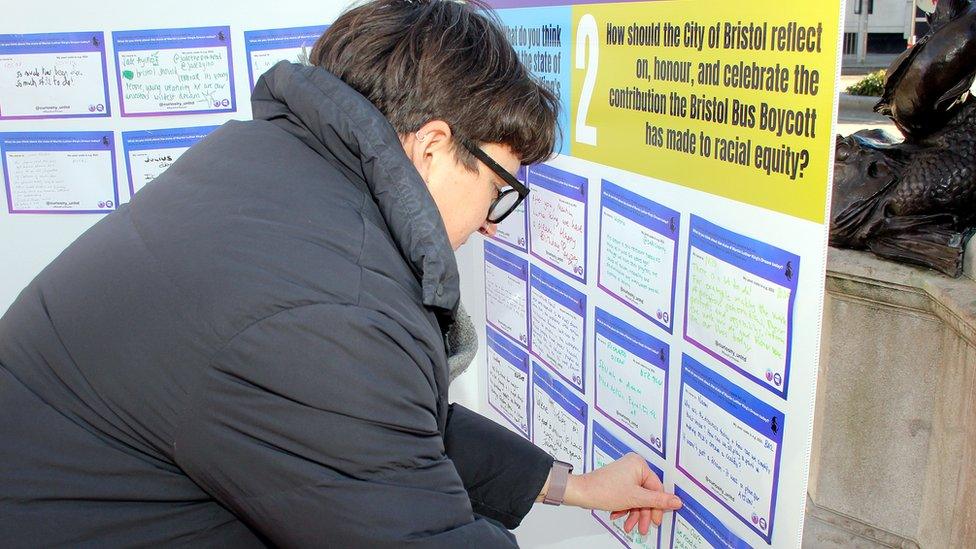
Race for Power aims to further discussions on racial equality
Mr Davis described Bristol as "a city of radical and racial change makers" and said 2023 had the potential to be a "game-changing" year for equality.
The campaigner noted this year also marks the 75th anniversary of the arrival of HMT Empire Windrush - a ship which brought hundreds of West Indians to the UK.
"It's a real opportunity right now to reflect on where we are with race.
"We have got to speed up and accelerate that racial equality for all of society's benefit," Mr Davis said.
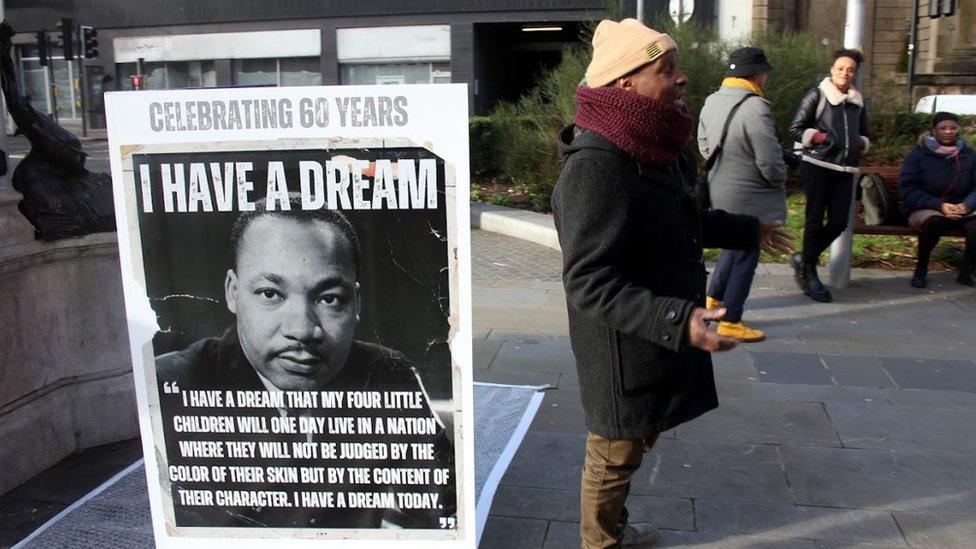
Citizens were asked what they thought about the state of Martin Luther King's dream today
With the Race for Power campaign focusing on Bristol, Mr Davis said he had been "concerned" about the lack of events in the city for Race Equality Week, which was observed from 6-12 of February.
In response, he decided to host two takeover shows on community station Ujima Radio, featuring guest discussions on racial equality.
Prof Christine Bamford, programme director at Stepping Up Bristol - which aims to ensure a fair representation of black, Asian and minority groups, disabled people and women in positions of leadership in the city - appeared on the first episode.
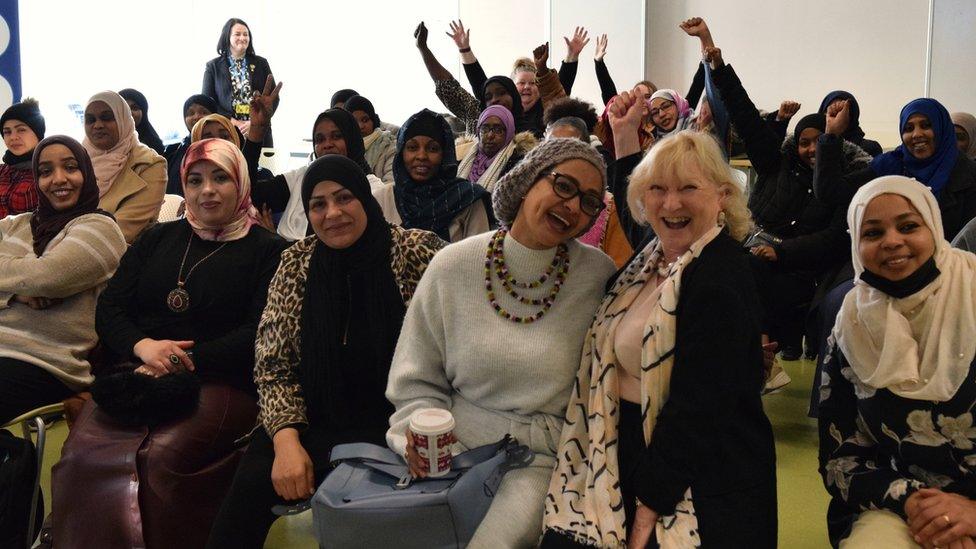
Prof Christine Bamford (second from right) with a group from Stepping Up
Speaking to BBC West, she said there had been significant progress to achieving racial equality in the city but more work still needed to be done.
Prof Bamford said: "Under the leadership of mayor Marvin Rees and deputy mayor Asher Craig, achievements have included the Equality Charter, Race Quality Forum and the One City Plan.
"Bristol is still on a journey - gender/race equality pay gaps do not demonstrate parity with white British workers."
Museji Ahmed Takolia CBE is the independent chair for the mayor of Bristol's Commission on Racial Equality (CoRE), which works to address barriers faced by minority groups, such as career progression, housing, education and health.
'Difficult and complex'
He is another supporter of Race for Power and appeared on the second Ujima takeover show.
Mr Takolia said to BBC West: "It's difficult and complex, this process of racial equality. This isn't just about race - there are issues playing out that intersect with class.
"We've gone from campaigning and virtue signalling that has happened around the country - what people and community is interested in is action.
"Race equality has to be challenging. If you don't take people out of their comfort zone, it's a cruise through."

Follow BBC West on Facebook, external, Twitter, external and Instagram, external. Send your story ideas to: bristol@bbc.co.uk , external
Related topics
- Published8 January 2023
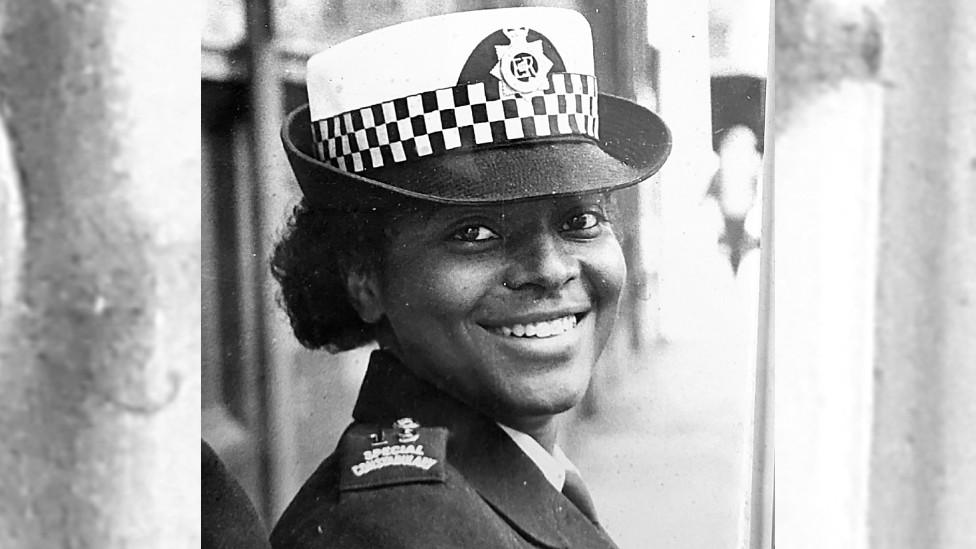
- Published4 September 2022

- Published9 August 2022
